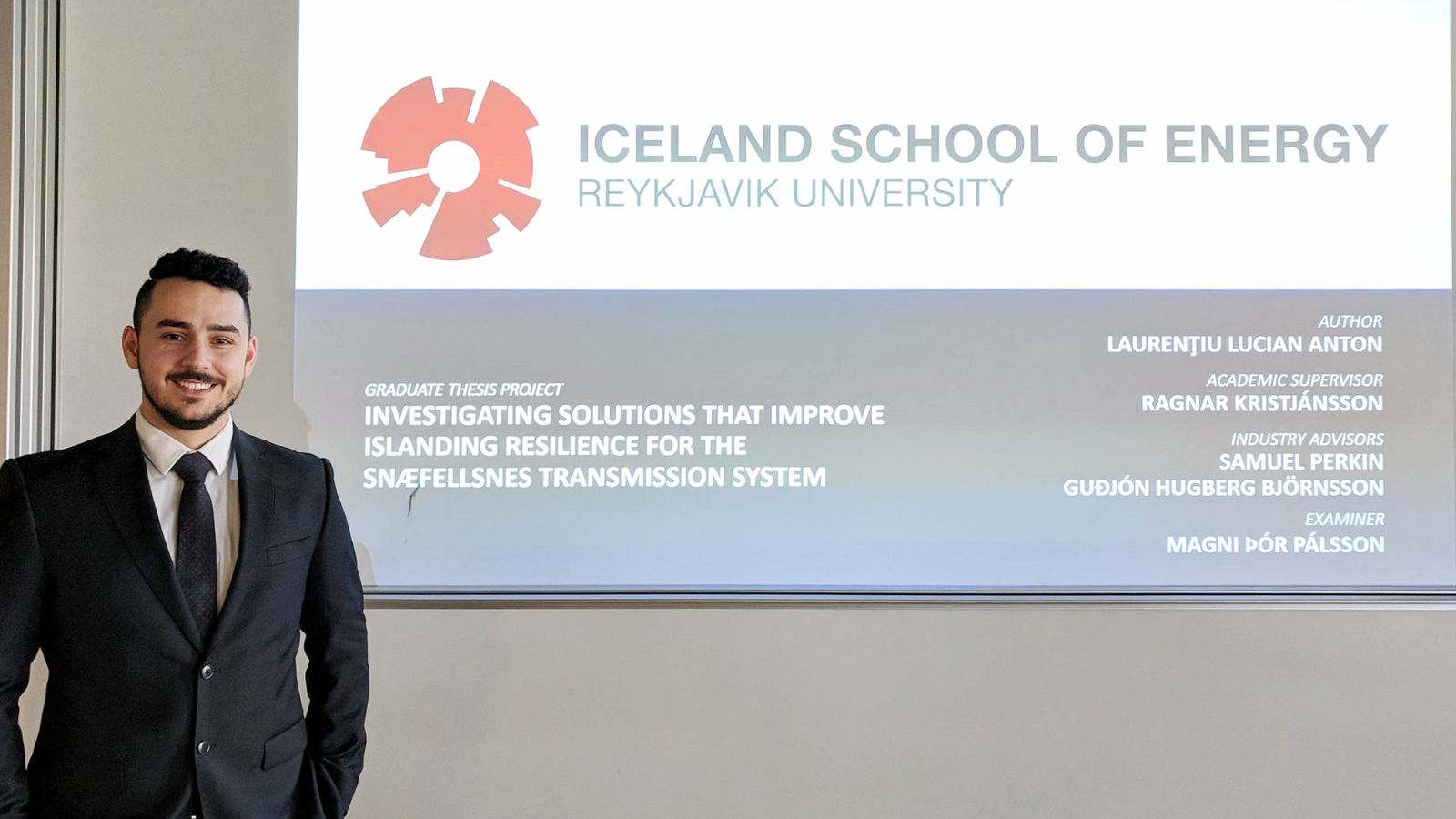MSc Thesis: Investigating Solutions That Improve Islanding Resilience for the Snæfellsnes Transmission System
Laurentiu Lucian Anton successfully defends his master's thesis
REYKJAVIK, JULY 9 - On the 30th of May, Laurentiu Anton, MSc in Sustainable Energy Engineering, successfully defended his master's thesis research in which he analyzed potential infrastructure improvements that promote islanding resilience for radial power system areas in Snæfellsnes while considering the social, environmental and financial implications of said improvements. Laurentiu's work was supervised by Ragnar Kristjánsson from Háskólinn í Reykjavík and advised by Samuel Nicholas Perkin and Guðjón Hugberg Björnsson both from Landsnet.

Laurie began by discussing how he researched the power system currently in place in Snaefellsnes. He also described his overview of the power grid in the West Fjords because like Snaefellsnes, it experiences weather-related issues but some solutions have already been put into place to counteract the issues in the power system. He then described the model he created that depicts the Snaefellsness power grid which he used to test various modification scenarios. The modifications tested were: the addition of a 66-kV feed in line, the use of Under-Frequency Load Shedding, the use of islanding-based shedding, the use of a quick-start backup diesel generation station and the addition of a battery storage facility. These scenarios were tested for economic feasibility by estimating costs as well as technical viability by determining whether islanding outages were eliminated.
Overall, Laurentiu found the battery storage facility to be the best overall solution. The methodology of his study can be applied to other radial power systems susceptible to weather-related disturbances. To read more about Laurentiu's work, click on the following link.
Congratulations, Laurentiu on an excellent thesis!
